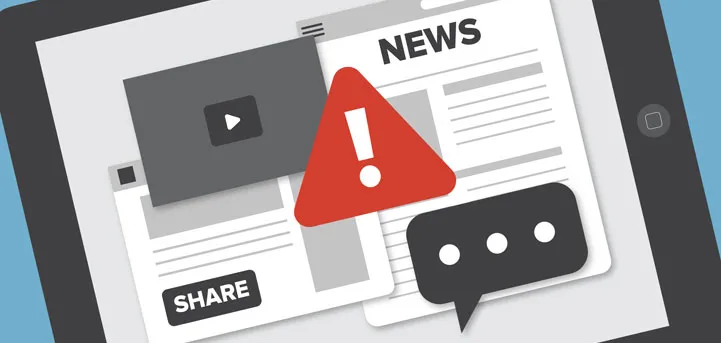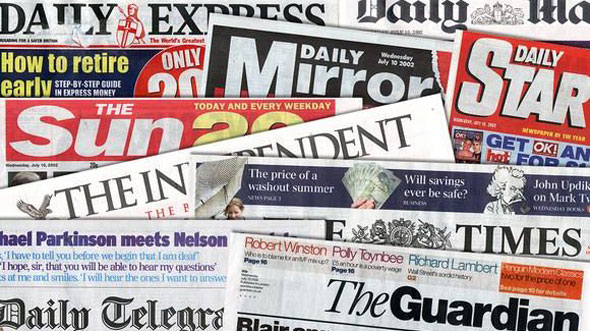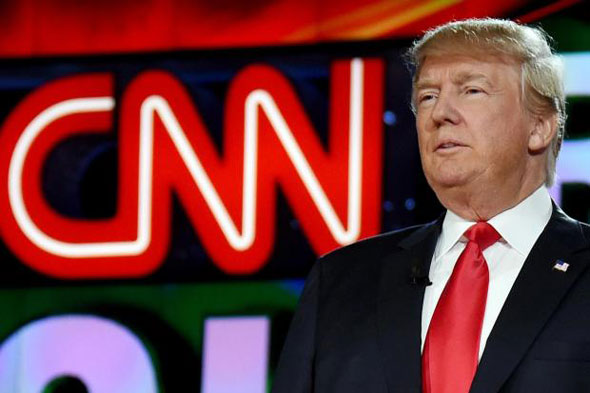


Fake News - The Role of Brands
Pull MD Chris Bullick argues that fake news is best countered not by finger-pointing and ‘fact-checking’ but with trusted brands. News is like any product – reputable brands don’t make fake products or push fake news.

Pull MD Chris Bullick argues that fake news is best countered not by finger-pointing and ‘fact-checking’ but with trusted brands. News is like any product – reputable brands don’t make fake products or push fake news.
‘Fake News’. Is this the most over-worked, over-used and abused phrase of 2017? If not something equally irritating will have to emerge over the next 6 months, although the related but completely nebulous ‘post-truth’ has already given it a close run for its money.
Firstly, I think we need a definition. All of the giants – and that includes Google, Facebook and the BBC for instance – have fallen foul of looking hypocritical and even ridiculous over fake news. They have all started initiatives to set themselves up as holier-than-thou arbiters of what is and what isn’t fake, yet have all been accused of purveying it. But what do we really mean by ‘fake news’?
Guido Fawkes – the UK’s top political blogger came up with a definition for fake news that seems like a good attempt: “Fake news: news that is produced to either generate clicks and advertising revenue or to either enhance or discredit or boost a politician, policy or organisation. Ranging from hoaxes to lies. The originator of “fake news” knowingly produces it with the objective in mind.” To me that largely exempts both Google and Facebook neither of which ‘produce’ news.

My assertion would be that news is just a product like others, and just as there are products out there that are less authentic – or less true – than others, what really matters in the end is brand. Strong brands make a strong promise, and to remain strong, they need to keep delivering against the promise.
So let’s look at fake news in more detail. Firstly is it really new? It seems the term really got traction during the last US presidential election campaign. A narrative caught on that ‘fake news’ deceived otherwise sensible Americans who then voted for Trump – i.e. they were deceived, hoodwinked and therefore made the wrong choice (Similar arguments arose in the aftermath of the UK Brexit vote) because of fake news. As these accusations of fake news emanated from the losing side of those votes, I think we can assume that this was inflating the importance of a phenomenon that occurred on both sides of each of argument rather than something that emerged as a truly new phenomenon.

However, what is probably new is that what used to be called ‘rumour-mongering’ has been turbo-charged by the Internet. Search and social media can be used to promote fake news as well as real news. My assertion would be however that news brands, search engines and social media have different responsibilities. And those responsibilities refer to their brand promise. Google’s brand promise relates to providing you with the most accurate and useful results considering the search term you have provided. Facebook promises to give brands and user groups a venue to post their own news. I like the idea that Facebook and Google are trying to demote fake news by fine tuning their algorithms, but get nervous about making them responsible for the veracity of all their content. Where could that end?
News brands on the other hand do promise (in varying degrees) to provide you with real news content that staffers actually produce, or they source, curate and should check. Never seeing a problem in their own doing of that thing, they righteously claim: “We never publish fake news. But we will ‘fact-check’ stories (especially ones that don’t suit our agenda) so that you can see how others generate fake news. News brands (which always have some political slant) have always pointed their fingers at those with the opposite slant in this way. The change is just inflation: ‘allegedly inaccurate’ has just become ‘fake news’. The New York Times and Facebook have also rather patronisingly created ‘Guides’ to spotting fake news - The NYT to suggest that ‘You won’t see it here’ and Facebook out of a guilty conscience perhaps because - ‘You will see a lot of it here. . .’

So if the fact-check route is wrong for news brands, what should they be doing? I would say that is easy to answer: Have a clear stated position on key issues, and build the trust of your audience about your accuracy. To me, bias is less critical than trust. If I read the Guardian or the Daily Mail’s news items in the UK, I know that the former is left of centre in its thinking, and the latter right of centre. So I expect them to be selective in their choice of news, and not unbiased - the bias will inform their selection. But their trustworthiness as a brand will be dependent on their accuracy. If their bias is obvious that is OK, because as a brand buyer I want that bias, but if their inaccuracy is continuously way off, then their trust as a brand will be eroded.
And people are actually long versed in weighing up news accuracy, it is part of being an adult in a complex, modern society. We don’t’ really (or shouldn’t) need homilies from Facebook and NYT to take a view, and not have to be told ‘not to believe everything we read’. Why would you trust news not from a trusted news brand, any more than you would trust another easily faked product that didn’t come from a trusted brand?
There is however another dimension to this. What if a trusted – indeed probably much-loved – national news brand that describes itself as the ‘most trusted news brand in the world’ breaks its promise to provide impartial news? That would be an interesting phenomenon if the brand was competing on an open market. You might be forgiven for thinking that the brand wouldn’t last very long. But what if that brand had over 70% of the UK’s news consumption (therefore a near monopoly) and was actually funded by a telly tax imposed by threat of imprisonment?
This appears to be what is happening at the venerable BBC. Rather strangely, the BBC both declares impartiality (in fact it is legally supposed to be according to its own charter) and yet admits it isn’t. As senior BBC news presenter Andrew Marr put it himself: “The BBC is not impartial or neutral. It’s a publicly funded, urban organisation with an abnormally large number of young people, ethnic minorities, and gay people. It has a liberal bias, not so much a party political bias. It is better expressed as a cultural liberal bias.” Such is the hegemony for that liberal bias at the BBC these days that they have got caught up in their own outrage about the ‘gender pay gap’ with their own female staff up in arms over recent pay disclosures (Fortunately they BBC do much better for gender parity when it comes to the number that they had imprisoned for non-payment of the telly tax last year: 44 women vs. 45 men).
There is now a veritable industry pointing out the BBC bias, with multiple websites pointing out dozens of examples daily, and calling for an end to the telly tax. One statistic tells you almost everything you need to know about the BBC’s slant on things. The BBC purchase the Guardian newspaper at a rate that is 5X the rate at which the British public does.
So the BBC are abusing very high levels of hard-earned trust, and it will therefore erode. This is because they do have a position on most issues of the day, but they don’t declare it. As we have heard from Andrew Marr the BBC is an ardent promoter of ‘progressive’ causes in their ‘news’ output: Climate change, LBGTQ issues, women in sport and business, Islamic interests, unlimited spending on the NHS and local services, unlimited immigration etc. They are reaching the point where they are not so much biased towards any political party, but more the campaigning wing of a political project than news provider.
This contradiction can’t last. Pursuing these agendas not only colours their news output, it now dominates it. For the Guardian it is OK to do these things – the Guardian is trusted to do so! For the BBC it is a betrayal of our trust in their brand promise. It has earned its reputation as a trusted provider of news. It is now the case that a good deal of that news is selected (and other news very blatantly omitted) not with the purpose of providing news, but promoting some cause or other.
I will admit however, that the degree of selectivity the BBC uses hardly amounts to fake news. I think that what the BBC are doing is more of a ‘news fail’. The selectivity and omission is designed perhaps to create a fake impression instead. So the answer to the question: Is the BBC an accurate news provider? I would say “well yes – if you don’t count what they so obviously avoid reporting”. Is it selective? Hugely. Is it biased? Hugely. As such it is failing in its promise of “due impartiality”, and for a much-loved brand it is undermining decades of trust that it has built up.
And in the long run like with any product, we will buy brands that we trust. If news brands want to be trusted, they must be true to their stated aims and accurate in terms of both commission and omission. You don’t’ have to be unbiased to be trusted, but in the long run you have to be trusted to be bought.
Posted 6 August 2017 by Chris Bullick